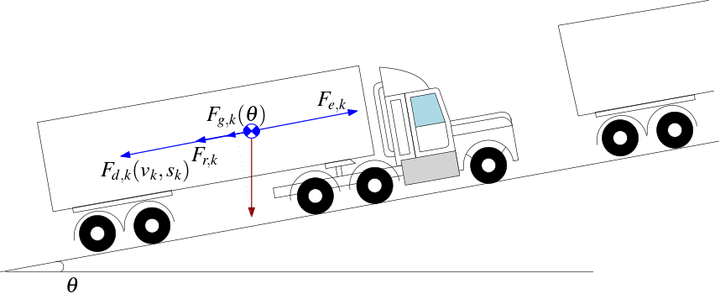Calibration and impact of control strategies for splitting trucks at on-ramps
 Taken from Paper
Taken from Paper
Abstract
Heavy-duty vehicles or trucks contribute in a significant share with global green house emissions and energy consumption in transportation systems. Truck platoon coordination strategies have introduced new technologies for better coordination and management of those intelligent transportation systems (ITS) to account for environmental efficiency. Current control strategies focus their attention on specific factors such as fuel efficiency or safety while neglecting the intrinsic combined effect when interactions exist with conventional vehicles. In this work, a study considering fuel consumption and environmental effects is presented when platooning strategies are operated near merging areas (on-ramps), a consumption model that considers dynamic conditions on each one of the vehicles is calibrated from real data, and a suitable adaptation is provided to the platooning case to taking into drag effect. Different scenarios at the control level are studied to analyze the impact of splitting maneuvers.